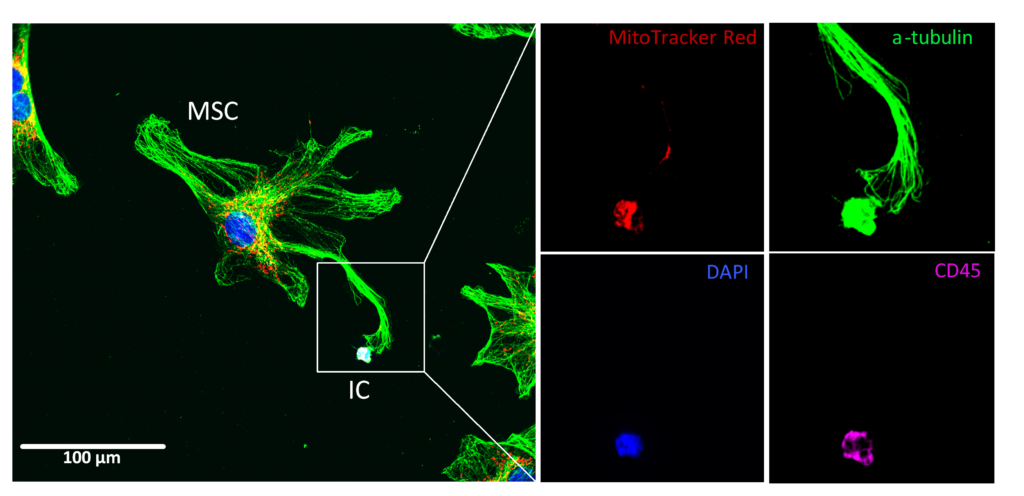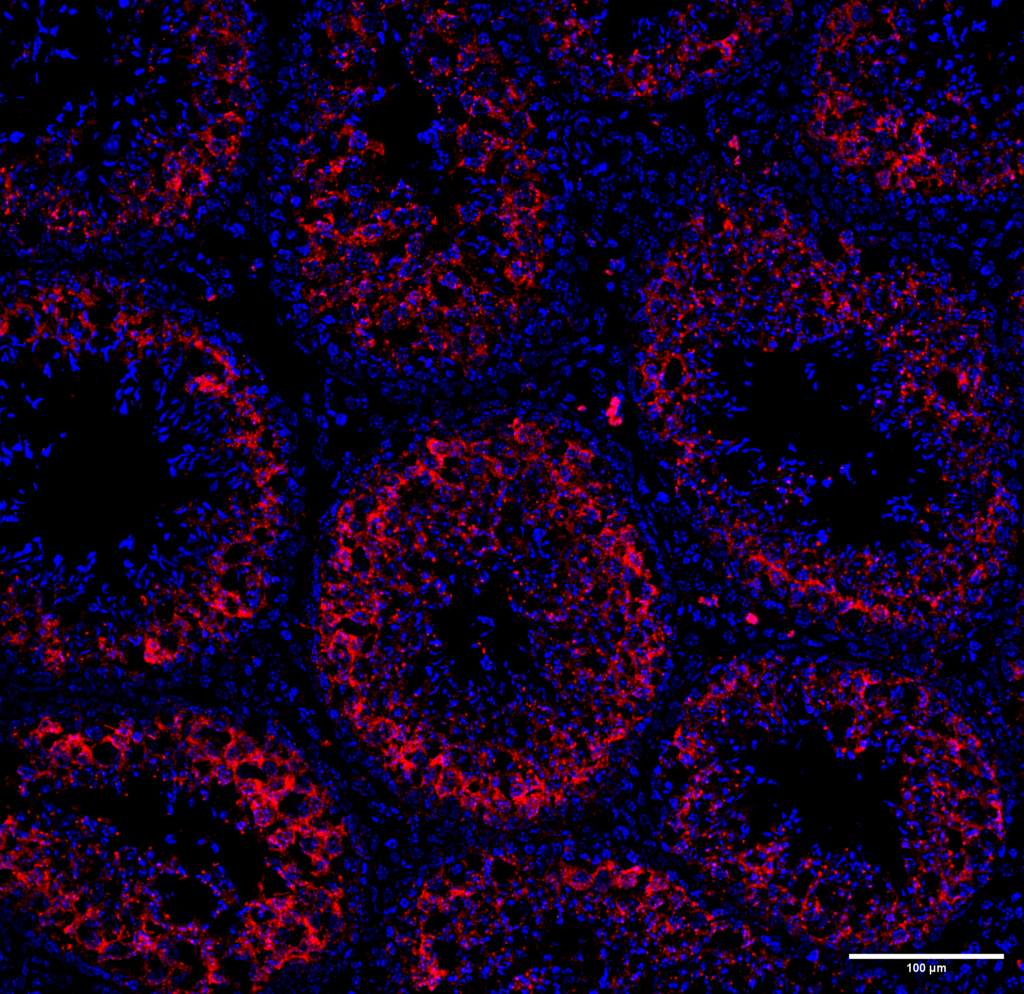Stem cells posses a unique regulatory potential and the ability to supress pro-inflammatory reactions, all while swiftly reacting to the organisms millieu. We are interested in the mechanisms of metabolic regulation of stem cells, along with their interactions with the neural system. We explore targeted regulation of stem cell immunomodulatory properties in order to enhance their therapeutical potential. We use a broad spectrum of methods, including 3D organoids and mouse models.

Mitochondrial Transfer
Mitochondrial dysfunction in immune cells occurs in many pathological states and can even be responsible for the development of multiple organ dysfunction. Mesenchymal stem cells have considerable potential to modulate the immune system. Besides paracrine functions, mitochondrial transfer is an important mechanism through which stem cells reduce inflammation by balancing cellular stress. Furthermore, by supporting mitochondrial maintenance and biogenesis, stem cells could induce metabolic switch and regulate the phenotype of immune cells. We previously confirmed the ability of different types of stem cells to transfer mitochondria to immune cells. However, the precise mechanism underlying mitochondrial transfer, its effect, and the faith of mitochondria inside the acceptor cell are yet to be discovered.
Cold Acclimatization
Another research interest focuses on the interaction between the immune system and thermoregulation. Specifically, we are fascinated by how the immune system acts as a catalyst for cold acclimatization and the formation of thermogenic brown adipose tissue. We are interested in complex neuroimmune mechanisms, including the role of different immune cells or changes in the immune response to pathogenic stimuli during cold acclimatization. Understanding these processes may lead to innovative treatments for obesity by promoting the formation of thermogenic fat that burns rather than stores energy. In addition, our research has a potential for broader health benefits, including the development of anti-inflammatory environments within adipose tissue, thus offering new perspectives in the treatment of metabolic disorders.


Sertoli Cells
Recently, we have confirmed that Sertoli cells (SCs) possess immunomodulatory properties of mesenchymal stem cells, including migration into damaged testis, and that SCs can modulate the recipient’s immune response even under xenogeneic conditions. Therefore, we are focusing on two aspects of SCs characteristics. First, the introduction of SC therapy to protect testicular immune privilege, suppress inflammation and support spermatogonial cells in men suffering from infections associated with the risk of impaired reproductive health. Our second interest is to assess the neural and metabolic regulation of endogenous Sertoli cells under inflammatory conditions.